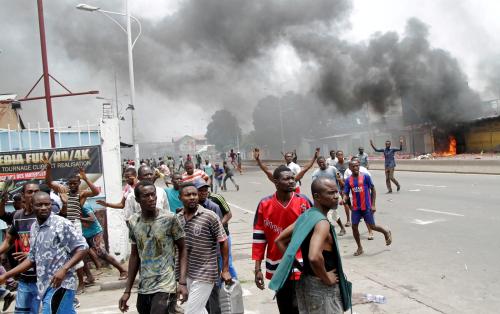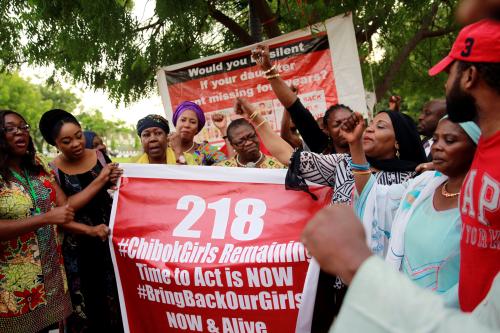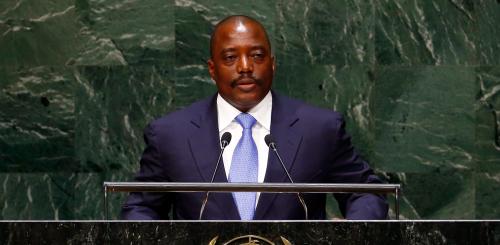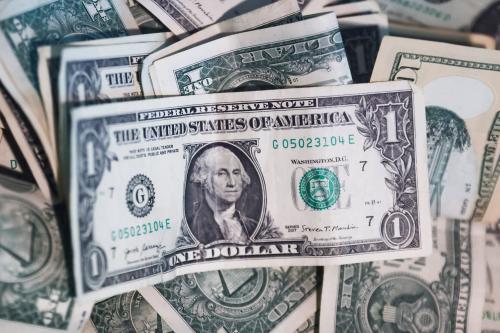This is the first in a series of three posts explaining the steps towards the current political crisis in the Democratic Republic of the Congo, examining the electoral changes and consequences, and exploring the political and democratic future of the Central African country.
The electoral system in the Democratic Republic of Congo has recently undergone an upheaval. After a supreme court ruling and an African Union-mediated “national dialogue” (which excluded the boycotting main opposition party) in October, the government announced that the elections, originally scheduled for this month, would be postponed until April 2018. According to the government’s critics, this deal effectively means that President Joseph Kabila will continue his 15-year reign for at least another 15 months, allowing time for constitutional changes for Kabila to remain in power indefinitely.
This week, President Kabila appointed opposition politician, Samy Badibanga, as the country’s new prime minister in a power-sharing arrangement that the main opposition coalition, the Union for Democracy and Social Progress, describes as an opportunistic move designed to effectively extend Kabila’s term in office.
The DRC is a vital country to the region and the globe: It is rich in natural resources—some of which are very important to global trade (copper, gold, diamonds, cobalt, coltan, tantalum, and tin). It is also the largest country in the African Great Lakes region and has the potential to contribute significantly to peace, democratic governance, and human development in the region. Developing a culture of peace and democracy in DRC would not only help stabilize the country and promote significant improvements in human development, but it would also benefit other countries in the region notably, Rwanda, Burundi, South Sudan, and Uganda—some of which are undergoing political turmoil themselves.
In order to better understand the intricacies around these political developments in this major African Great Lakes country, we need to take a look at its history.
The DRC’s turbulent political history
The DRC gained independence from Belgium on June 30, 1960 and immediately plunged into civil war as the provinces of Katanga and South Kasai mounted secessionists struggles against the central government. The new country was led by its first democratically elected leader, Patrice Lumumba. Since the assassination of Lumumba in February 1961, the DRC has never had a peaceful regime transition. After years of political uncertainty and continued secessionist attempts, Joseph Mobutu, Lumumba’s military chief of staff, took control of the government in a military coup in 1965 and ruled through 1997. During this time, Mobutu changed the country’s name to the Democratic Republic of Congo (République démocratique du Congo) and then, in 1971, to the Republic of Zaire. Mobutu’s reign was characterized as a corrupt and brutal dictatorship.
In the aftermath of the Rwandan genocide, the opposition leader Laurent-Désiré Kabila and his Alliance des Forces Démocratiques pour la Libération du Congo-Zaire forced Mobutu into exile. Kabila subsequently named himself president and changed the name of the country back to the Democratic Republic of the Congo. Kabila was originally hailed as a savior, one who would rescue the country from the ravages of the Mobutu dictatorship, yet his rule was characterized by authoritarianism, impunity, and high levels of venality in the public sector.
In 2001, Kabila was assassinated and his son and current president, Joseph Kabila, took over. The younger Kabila was elected president in 2006 and re-elected in 2011, in an election which his opponent, Étienne Tshisekedi, claimed he had won and which international observers adjudged was marred with fraud. Despite the fact that Joseph Kabila’s reign has been marked by increasing sectarian violence, deepened poverty, high levels of corruption, a worsening job situation (especially for urban youth), and a tendency for the government to respond to citizen dissent with violence, since 2006 the country, has been somewhat of an “electoral democracy,” although somewhat “fragile” and “dysfunctional.” The hope is that this election, especially if it is undertaken peacefully, fairly, and in a way that is considered credible by the majority of Congolese, could go a long way to consolidating the country’s embryonic democracy.
The controversy
Elections were supposed to be held in the country on November 27, 2016 to produce a successor to Joseph Kabila, whose second and final term in office ends at midnight on December 19, 2016. However, the country’s electoral authority (Commission électorale nationale indépendante—CENI) indicated that it had decided to postpone the elections because the country had not yet successfully conducted a census to provide it with an accurate number of voters. In addition, the CENI stated that it did not have the more than $1 billion needed to finance the election. Many observers, especially members of the opposition, believe that incumbent President Joseph Kabila is the architect of the electoral authority’s failure to proceed with the elections.
Kabila, as argued by many opposition principals, is said to be interested in staying in power. In addition to the fact that many years of civil strife have heightened corruption, destroyed the national economy, eroded the institutions of law and order, and created conditions that threaten peace and security in the country, many citizens have lost trust in the government in Kinshasa. There is optimism among many observers that new elections would provide the people of Congo with the opportunity to choose new leaders who can unite the country and create an enabling environment for peaceful coexistence, investment and job creation, and a general improvement in the quality of life of citizens, especially that of the bottom half of the population.
The Brookings Institution is committed to quality, independence, and impact.
We are supported by a diverse array of funders. In line with our values and policies, each Brookings publication represents the sole views of its author(s).








Commentary
The postponed DRC elections: Behind the tumultuous politics
November 18, 2016